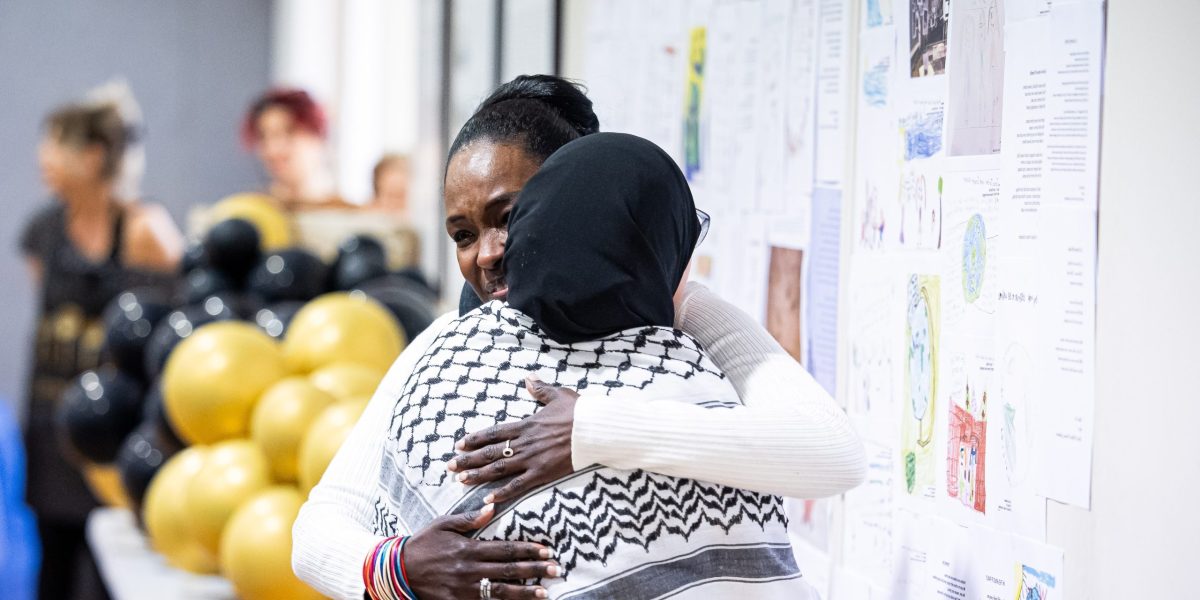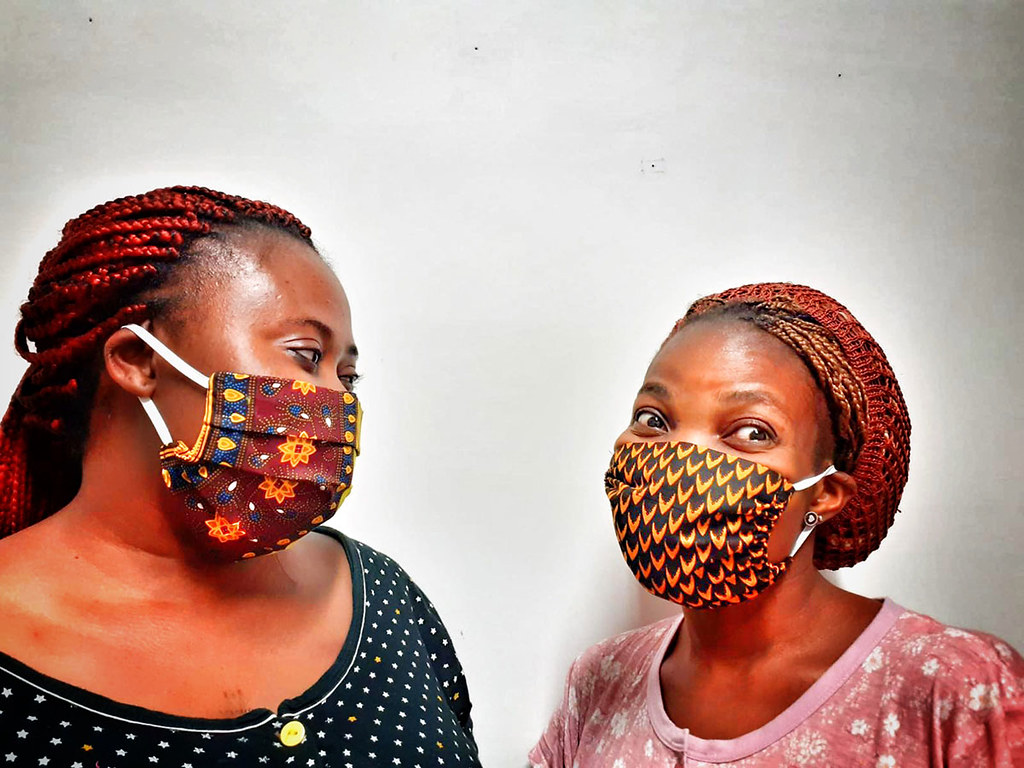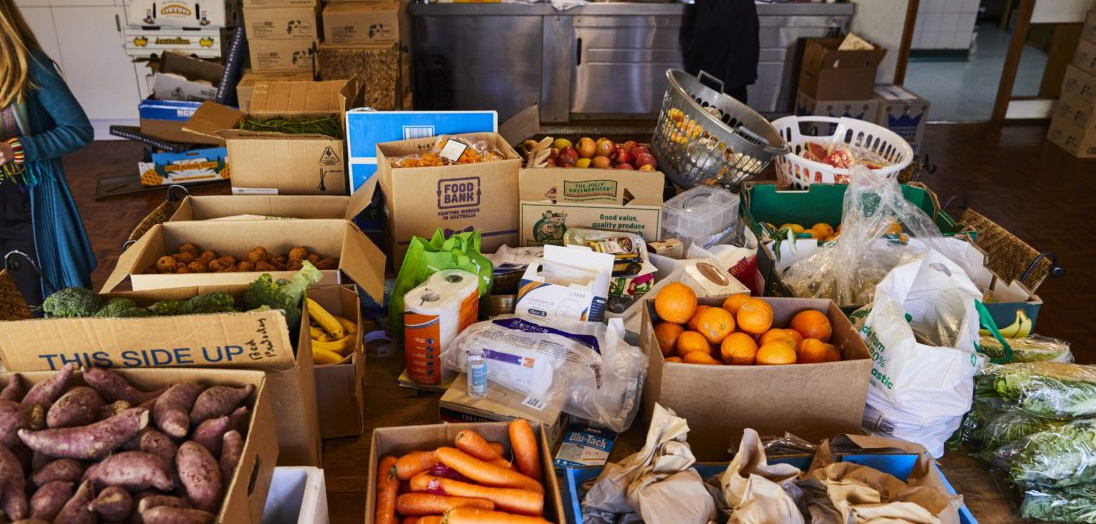Finding Safety Project needs more support to address homelessness risk for refugee women
13 August 2024|Magdalene Konneh

Finding Safety Project needs more support to address homelessness risk for refugee women
Magdalene Konneh is the Finding Safety Project Officer at JRS Australia.
The Finding Safety Project, operating through JRS Australia’s Women’s Space, offers specialist casework, community wellbeing services, leadership opportunities and emergency relief to women on temporary visas, women seeking asylum, and women from refugee backgrounds. Specifically, the Project supports women that have experienced or are at risk of experiencing sexual and/or gender-based violence (SGBV).
As we mark Homelessness Week 2024, Magdalene shares facts and case studies from the Finding Safety Project that highlight the severity of housing insecurity amongst the women we serve. She also advocates for greater support for the Project, so long-term, sustainable and self-empowering solutions can be found to ensure we give women and children the best opportunities to rebuild their lives.
Magdalene is also a leader with JRS Australia’s Refugee Leadership Program, and speaks from experience and with expertise as someone who has sought asylum in Australia and faced homelessness. We are privileged to amplify Magdalene’s voice below as we advocate for change to better support women seeking asylum in Australia.
The crisis from the perspective of Finding Safety
Women facing SGBV survive through incredible trauma as they try to leave their abusers and find safety. Unfortunately, one of the most common barriers to escaping violence, particularly for women on temporary visas, is the very real risk of homelessness from the moment they are separated from their perpetrator.
Every week, the Finding Safety project receives calls from multiple women requesting support finding emergency and long-term accommodation. Even though the Women’s Space doesn’t have the capacity to support everyone, team members will do all they can to ensure these women – and often their children – do not have to sleep rough.
To some extent, the Women’s Space has become a safe heaven to many of our clients.
Nevertheless, finding accommodation for women and children on temporary visas is the most difficult part of our job.
Shelters will reject our clients based on their visa status – and if we are lucky to get a shelter to create space, they will always ask for evidence of an “exit pathway” that women on temporary visas do not have. With an unresolved status, or no permanent protection in Australia, many of the women we serve are not eligible for Medicare, not eligible for Centrelink or other social support payments, and therefore are commonly not eligible for community services and refuges offered to other members of the community.
Their visa conditions often also prevent women from working, and coupled with childcare responsibilities, this inhibits the women we serve from securing long-term financial independence for themselves and their children.
These factors mean that the women we serve, and their families, are in an incredibly vulnerable position and at a high risk of experiencing homelessness. These impossible conditions often end up putting women back in harms way, as they often have no option but to return to the house they share with their perpetrator.
At JRS Australia, we offer all the support we can to provide emergency relief payments, a safe space of belonging and community, and to connect women to further support services. These are only a temporary balm when women face the ongoing inability to live in a safe, stable and secure home with their children.
We know we have so many people in our broader community that want to support the women we serve to rebuild meaningful lives in Australia, but we need to come together to demand systemic change.
A case study
*Please note the client’s name has been changed to protect her anonymity and this story has been shared with her permission.
About a month ago, a client Emma*, arrived at the Women’s Space with the Deputy Principal of her son’s school. Emma had left her home at 4am that morning. She was quite shaken and teary, explaining that she could not go back because her husband had been using violence and verbally abusing her, and as well as being violent with their 10-year-old son.
Emma left home with only the clothes she was wearing, as well as a small, packed bag. She was incredibly worried about her son, who she was unable to bring with her in the morning.
With the help of the Deputy Principal who had picked her son up from the bus stop, Emma was able to bring her son to the Women’s Space and rest in a place of safety to consider her next steps. Seeing her son was a breath of fresh air and Emma was relieved momentarily from the stress of having nowhere to sleep that night.
The entire team at the Finding Safety Project stopped all we were doing to focus on finding a home for Emma and her son – so they could be safe. We contacted every shelter we know in Sydney; and none were able to assist with providing accommodation for them, due to Emma’s underlying visa situation.
Emma’s recent application for a Bridging Visa E was denied, leading her to lodge an appeal with the AAT which has not yet been heard. It is unclear whether Emma has a valid visa at all at this stage, which means her Medicare has also expired, she has no work rights and therefore no exit pathway. All the refuges contacted by our team were unable to assist without evidence of an exit pathway.
While searching for a place for Emma and her son to stay, our team ensured we provided lunch, so they could at least eat something that day.
Our team were also able to provide some minimal financial assistance, in the form of vouchers so Emma could buy some new clothes.
Finally, we received a positive response from Link 2 Home – who could only provide two nights of accommodation at a Motel in Parramatta.
A team member transported Emma and her son to the hotel that evening, stopping at Kmart on the way to buy some essentials for the following few days.
The next day, Emma called and said: “I was able to get some rest last night while staying in my temporary accommodation, and I was in good spirits. My son was also able to sleep, and he was happy this morning. Thanks to the Space for supporting us to get safety”.
The days secured at the motel are not a sufficient long-term solution for Emma and her son, who deserve a dignified, safe and permanent safe pathway to rebuild their lives.
Nevertheless we celebrate these small and meaningful successes. Emma was happy to spend a night away from violence. In her own words, it brought her freedom, and she felt her whole life was repurposing because of that.
Our team has continued to work with Emma, and although we have not been able to secure a temporary shelter, we have been engaging with Link 2 Home to extend her emergency support.
As a result, Emma and her son are moving from one hotel to another – a very difficult situation for a young boy who needs comfort and reliable accomodation as the very basic minimum for healthy development and wellbeing. He is struggling at school because of this instability.
Like many other clients that reach out to us, Emma’s experience is typical of women on temporary visas who are escaping SGBV. The lack of support from public services creates situations where women will return home to their abusers and face more violence.
We are experiencing an epidemic of violence in Australia, and women on temporary visas are at the forefront of this issue – marginalised, left without resources and support, and forced to overcome unnecessary obstacles just to find safety and protection from violence.
We ask you to please support our Finding Safety Project, and support us through advocacy in your community and with your local Members of Parliament, to stand in solidarity with the women we serve and ensure nobody is left without a safe place to live in Australia.
Want to find out more?
We have a number of resources about the impact of homelessness on the people we serve. See our feature article on Homelessness Week here, and follow us on social media to keep updated throughout the week of 5 to 11 August 2024.
Our Finding Safety Project supports women seeking asylum and on temporary visas who are experiencing sexual and/or gender-based violence. Click here to find out more about the Project and the vital services it runs.


